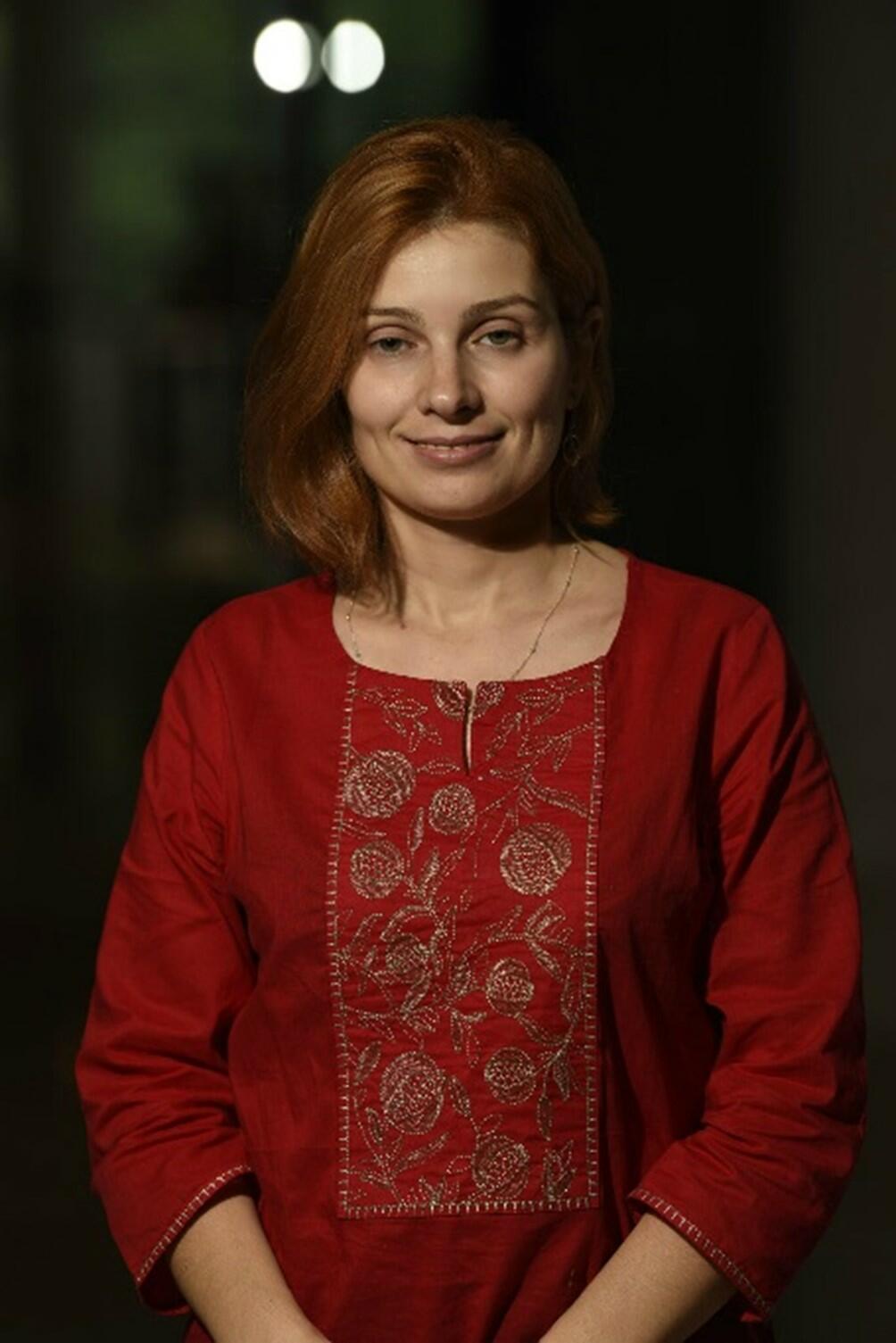
On International Men’s Day on 19 November 2021, Oxana Rucsineanu, Director of programs at the Society of Moldova against Tuberculosis (SMIT), TB Patients Association in Moldova spoke at a webinar on Enabling a Gender-sensitive Response to End TB. The webinar was convened by The World Health Organization (WHO) and the Stop TB Partnership along with the global health research programme – Leaving no-one behind: transforming Gendered pathways to Health for TB (LIGHT) and the Social Sciences and Health Innovations For Tuberculosis (SSHIFTB) virtual centre. The event brought together a distinguished line-up of speakers including WHO and Stop TB leadership, researchers, programme implementers and foremost those affected by TB and civil society– all who wanted to raise awareness and accelerate action to enable, develop and implement gender-sensitive approaches to end TB. Here is her story.
Thank you for this opportunity to share my personal experience with tuberculosis (TB) and the experience of my husband, Pavel, on International Men’s Day, as well as the opportunity to talk about a different perspective and the importance of legislation changes, we both contributed to by our own engagement. My name is Oxana Rucsineanu and I work as Executive Director at the SMIT Association, a TB advocacy and support organisation in the Republic of Moldova.
I want to begin by sharing two stories:
OUR LIFE WITH TB
Oxana: 2007-2010 (3 years of life with TB)
After a year of treatment with drugs for drug-susceptible TB which proved ineffective, on 3 July 2008, I started treatment with second-line TB drugs. After two months my sputum converted to testing negative for TB, a positive sign, and I finished treatment 24 months later.
Pavel: 2005-2015 (10 years of life with TB)
Pavel started his treatment almost a year ahead of me in August 2007. In August 2009 (the summer we met) he was about to complete his second year of treatment with second-line TB drugs but unfortunately with no success, playing a “deadly game” of positive-negative-positive sputum conversion for years. The verdict of the doctors was harsh – he had extensively drug-resistant TB (XDR–TB) and "little chance to get well" because the TB he had was resistant even to second-line TB drugs.
OUR FIGHT WITH TB
As we were young and passionate, we didn’t want to give up and started our own fight with the disease.
In 2009 we found an article about a new drug called TMC207 (later known as Bedaquiline), being studied in Phase II clinical trial in patients with multi-drug resistant TB. We contacted the research team with a message of help to include Pavel in the clinical trial. After four years of back-and-forth messages and with the hope of access to the drug, we had no luck as at the time there was no intension to have a trial site in Moldova where we lived, and the available “compassionate use” pathway was inaccessible due to country rigid legislation.
Meanwhile, our story became known to a group of activists in the USA who put huge efforts in to make changes to Pavel’s treatment (after long consultations and examinations at national and international level) to include the drug Linezolid. This drug was added through a donation programme ($50/per pill), a huge amount of money for us to bear by ourselves. Thanks to this, Pavel successfully completed his treatment in 2015 (24 months of an individualised treatment programme).
OUR ADVOCACY TO IMPROVE LEGISLATION
While fighting desperately with the disease, together with a group of TB activists, we founded a SMIT National TB Patients Association in the Republic of Moldova in late 2010. We advocated on a series of important TB issues, contributing to legislation changes in the country including:
- Advocating for the development of Ministerial Disposition and Guidance for the introduction of the new drugs in the Tuberculosis treatment (Nr. 47 of 23.01.2017)
- Contributing to the revision of the Government Decision and Guidance to introduce the multisectoral approaches in the support of TB people encountering barriers to adhere to treatment (Nr. 295 of 14.-5.2012 to replace Nr. 472 of 07.08.2009)
- Advocated for the extension of the nutritional support to all patients with all TB forms, not only new and retreatment cases (Ord. MS şi CNAM Nr. 99 / 52A of 15.02.2017 to replace Ord. Nr. 1285/265 A of 20.12.2012)
- Advocated for the update of the NEML for the inclusion of all TB drugs according to the WHO classification (Oct 2021)
Regarding gender equity in the context of TB, I would say that even if there is insufficient data on the gender dimension of TB in my country, there are favourable conditions in the Republic of Moldova. This includes a supportive legal and gender-transformative environment; a Global Fund grant which includes the collection of gender-sensitive data; the national TB monitoring and evaluation system obtaining data disaggregated by gender. Still, more in-depth research is needed to identify specific, gender-dependent barriers in the continuum of TB services. And so, starting from September this year, we, as an organisation in collaboration with a human rights organisation (Institute for Human Rights - IDOM) are leading on a community, human rights and gender and stigma assessment in the country to identify bottlenecks and formulate practical country-specific recommendations to improve TB services.
A WAY FORWARD
To end, I would like to highlight that collection of data is critical to inform guidelines. For this, communities and civil society organisations should be engaged to educate and implement community led monitoring, as valuable contributors to improve policies and the quality of TB services being provided in the country. This includes gender-sensitive approaches.
Thank you for taking time to read our story.